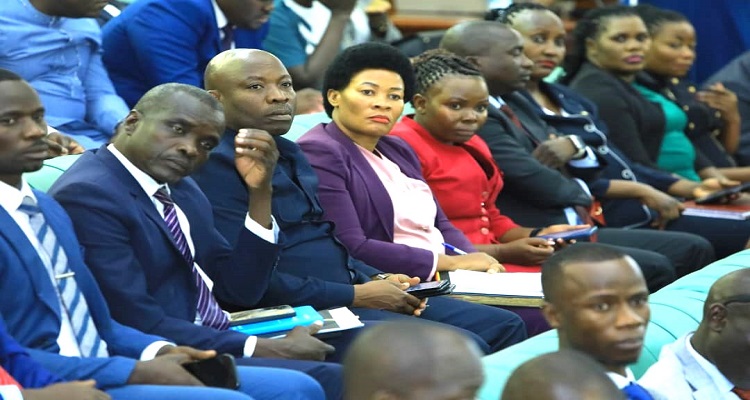Hon. Betty Amongi, Minister for Gender, Labour, and Social Development, presented the proposed amendments to the 2006 Occupational Safety and Health Act on Tuesday, 09 January 2024, during the plenary sitting chaired by Speaker Anita Among.
Titled the “Occupational Safety and Health (Amendment) Bill, 2023,” the bill aims to enhance health and safety standards in all workplaces, rectifying inconsistencies in the existing act and refining the Minister’s authority to establish regulations.
Amongi justified the amendments by highlighting the significant transformations in the workplace landscape since the enactment of the principal act in 2006.

Changes such as teleworking, virtual jobs, and the outsourcing and subcontracting of labor necessitate an updated legal framework, according to Amongi.
The proposed legislation is designed to address the unique challenges posed by rapidly evolving sectors, including telecommunications and the extractive industry.

Amongi emphasized that the current law is tailored for workplaces with a sizable workforce, overlooking the impact of increased automation on certain job activities leading to new safety and health concerns.
“Clause 4 seeks to amend section 14 by repealing the words “who has at least twenty employees at a workplace”, to require all employers regardless of the number of employees to put in place health and safety measures of the employees at a workplace,” said Amongi.
If the Bill is amended, she says an employer will be required to establish a committee to develop and implement occupational safety and health workplace policy.
The employer will also be required put in place measures to prevent exposure of persons to noise, dust, vibration and other hazards and to monitor the noise, dust, vibration and other hazards in the workplace as recommended by a risk assessment report.
The Bill also provides for litigation procedures in regard to occupational safety and health challenges.
“Clause 2 seeks to replace section 9 to empower an inspector to institute before a court any charge, information, complaint or other proceeding arising under this Act, or in the discharge of his or her duty, in consultation with the Director of Public Prosecutions,” reads the Bill.








